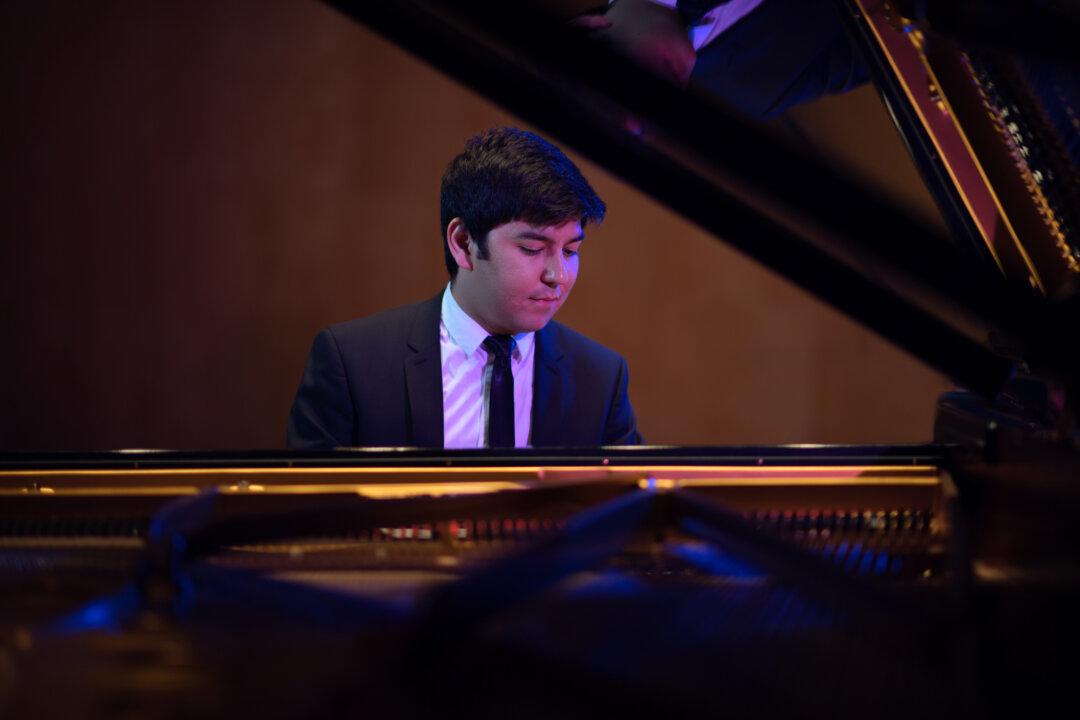In 1817 Beethoven is said to have boasted, “I am writing a sonata now which is going to be my greatest,” according to his student Carl Czerny. It would be a sonata that would “give pianists something to do,” and would be “played 50 years hence.” Pianists today disagree.
Nearly 200 years later, piano lovers and players have not yet tired of the “Hammerklavier” sonata. It was a “gigantic” take on the sonata form at the time of its composition—four movements instead of the usual two or three, a heavy piece with innovations on the expected forms of these movements—and it remains a technical milestone for pianists today.
It’s what Behzod Abduraimov, rising piano virtuoso, wants to play next. “It keeps you disciplined,” he says of Beethoven’s sonatas, and the “Hammerklavier” in particular. “Beethoven, he’s very clear in his music; he keeps you to that discipline.”
If you’re playing a vast number of pieces, expanding repertoire quickly in a short period of time, it’s easy to learn a piece without really comprehending it, Abduraimov explained. He could say he is in this type of position, having shot to success and recognition in recent years, playing with orchestras all over the world.
Abduraimov is part of a generation of young virtuoso players who have dazzled audiences with drama and passion, with one difficult piece after another. Critics around the country were enthusiastic about this discovery, and wished him a great and successful career.
But, playing so many things so quickly, the musician may not have had the time to really internalize the music. A musician may forgive himself for that sort of sense of relaxation, and let it slide. But Beethoven, he said, if you play as the composer intended, does not allow you to do that. Beethoven was very clear in his music, and clear that he wanted it played exactly a certain way, Abduraimov said.
And Abduraimov says that when he plays, “I want to be very honest to the composers’ intentions.”
“In every composer, I find the uniqueness, and that moves me to play those pieces,” he said.
Foundations and Learning
Abduraimov’s mother is a piano teacher, who introduced him to music and the piano at an early age. He remembers her putting on Tchaikovsky, and recordings of Russian pianists and the American Van Cliburn. He would think, “When will I be able to play those pieces?” and get so excited.
She first took him to lessons when he was about 6. And when he was 8, he performed Mozart’s Variations in D Major with an orchestra, and he was hooked. He couldn’t imagine a life without music.
Abduraimov has had just two music teachers, whom he feels lucky to have worked with. Tamara Popovich was his first teacher in Tashkent, Uzbekistan, and she impressed upon her students a solid technical foundation. Then Stanislav Ioudenitch, known for winning the 11th Van Cliburn International Piano Competition, was his second teacher at Park University in Kansas City, Missouri.
There, he learned to really study and understand the composers whose works he was playing, how to absorb all the details available to him and interpret the music.
Serious, but Accessible
Abduraimov currently plays many Romantic pieces and feels close to Russian composers because of his cultural background—“It goes right into you, to the bottom of your heart”—but is interested in the whole of the repertoire available to him. He says he has so much he wants to try out and learn and play.
After all, we are in a period of time where he feels classical music, which he categorizes as serious music, is possibly more accessible than it has been to people in a hundred years. He recently performed in Baltimore and was happily surprised to see many young children, about his age when he'd started music, sitting in the audience and looking completely absorbed throughout.
“When I prepare a piece and play for the audience—I can’t really explain, but it’s some kind of energy that I feel, and hopefully my audience feels too, to bring them this message of the composer,” Abduraimov said.
“And these are kids! I brought the message, and they were completely engaged. ... That made me very happy.”
It’s because this is an art, and it is timeless, he said. It is for anyone, at any age.
Abduraimov finds music to be a deeply profound art but also something that is meant to be fun, and meant to be shared.
It also “transforms every listener,” he said. “They get something personal, for themselves. It cleans the soul of every person. What else can be better than that?”
“I feel that music cleanses the soul, really,” he added. When non-musical work piles up and he feels cluttered or ill at ease, he sits down to play the piano. It’s transformative, every time.
“So many things change in the world, through politics, religion, and what have you. But music stays—it’s pure. It’s untouchable,” Abduraimov said.
On Nov. 17, Abduraimov is performing at Carnegie Hall as a part of its Keyboard Virtuoso series at Stern Auditorium. He’s put together a program of contrasting composers and styles, starting with Baroque pieces tinged with Romanticism before moving on to lyrical Schubert “moments” that Abduraimov feels represent the “pure beauty” of Schubert’s music.
Then it’s passion and poetry with Beethoven’s “Appassionata,” a piano sonata by Prokofiev that Abduraimov says really contains a symphony—“It can be bombastic, in a good way”—ending with “Islamey: Oriental Fantasy” by Balakirev, a piece for entertainment value, but of a genre close to his heart.
“It’s pure pleasure,” he said.






